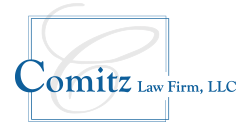 When a person passes away, all their possessions such as real estate, money, stocks, personal belongings become part of their “estate.” The estate will need to be managed, and its assets preserved. This important duty is carried out by the decedent’s executor.
When a person passes away, all their possessions such as real estate, money, stocks, personal belongings become part of their “estate.” The estate will need to be managed, and its assets preserved. This important duty is carried out by the decedent’s executor.
If the decedent died testate (with a will), the nominated executor will need to go through the court’s probate process to have the will declared valid by the probate court judge. Once that occurs, the executor – now called the personal representative – can begin the estate administration process.
In addition to distributing the remaining estate assets in accordance with the will or the laws of intestacy, the representative’s tasks may entail:
- communicating with heirs or beneficiaries
- locating all creditors
- paying all debts (using estate funding)
- paying all applicable taxes (using estate funding)
- receiving payments owed to estate
- making necessary payments such as mortgages
- filing any necessary tax returns
- reviewing decedent’s insurance policies to ensure adequate property coverage
- cancelling credit cards
- closing bank accounts or setting up new ones to handle estate’s finances
- filing a final account
Comitz Law Firm, LLC can help you answer any questions you may have about estate planning and administration. Call us to schedule your consultation.


